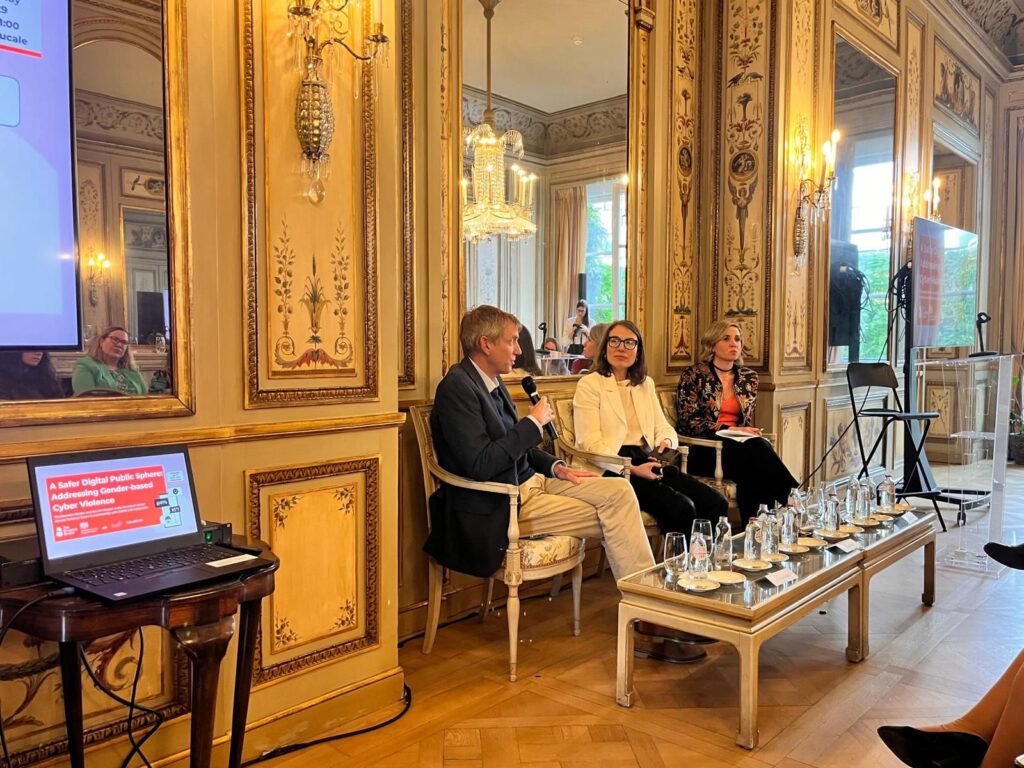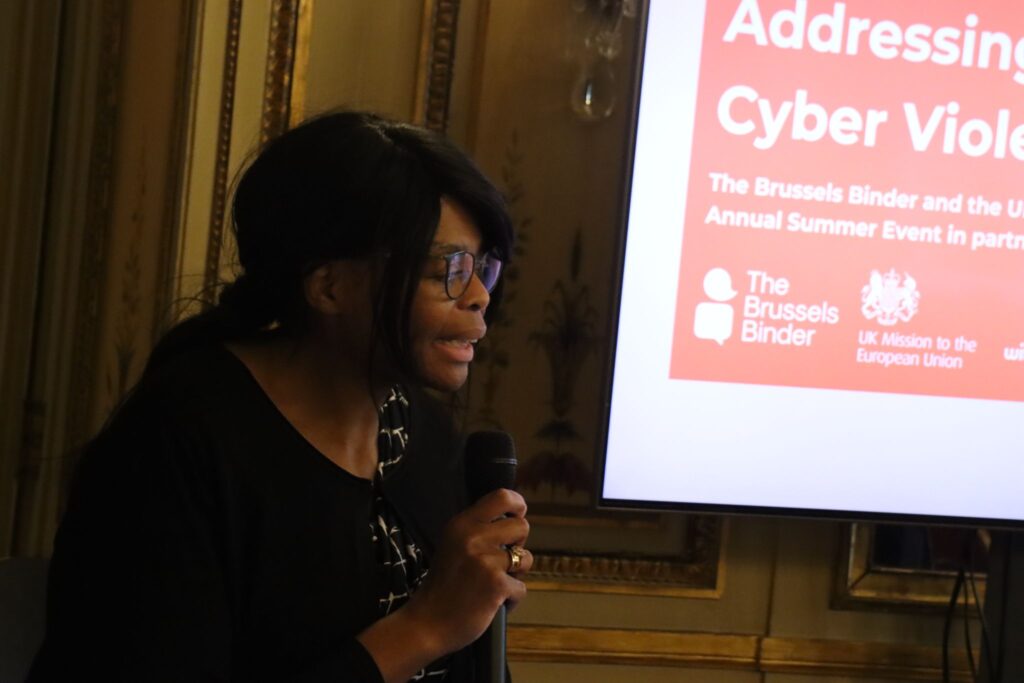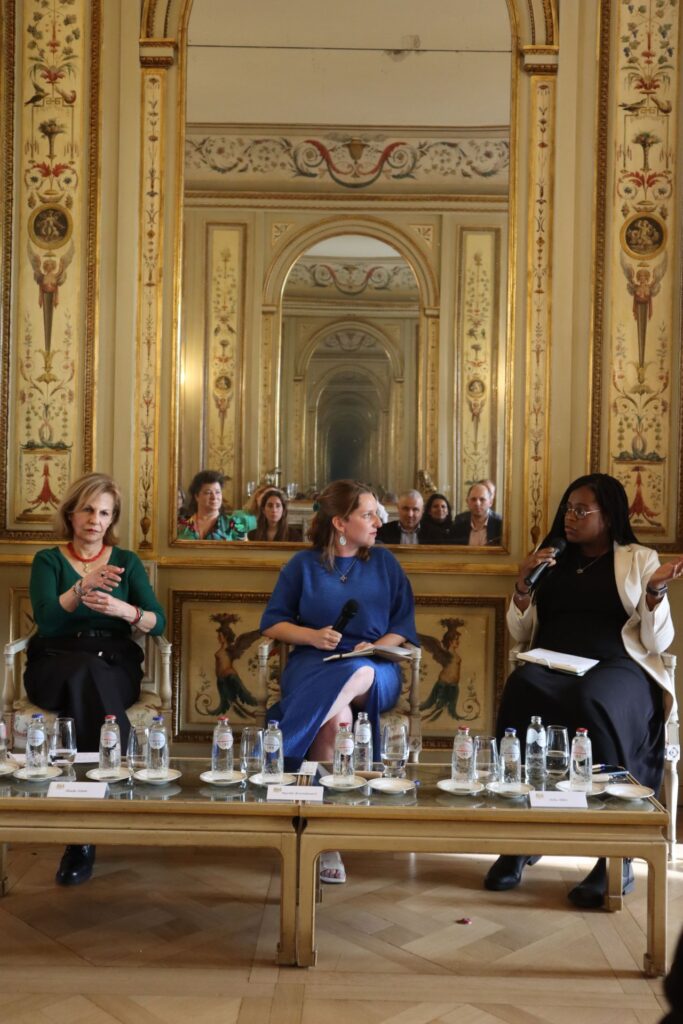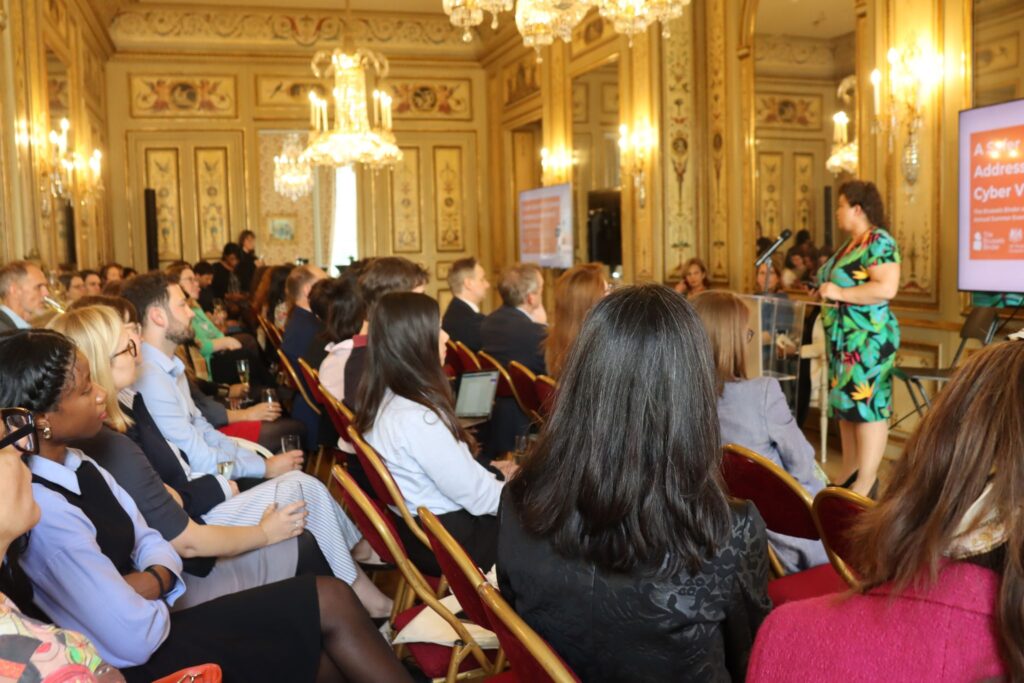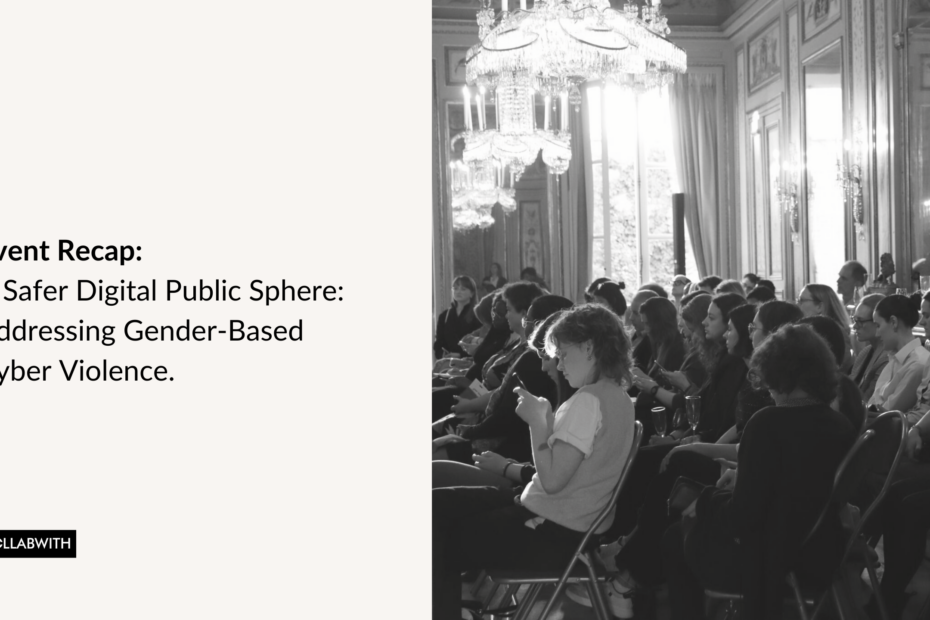Speakers included Asha Allen, Shada Islam, Myrthe Bovendeaard, David Wright, Michela Palladino, Nadine Nembach, Dr. Audrey-Flore Ngomsik, and Jara Pascual.
Nadine Nembach posed the question: „What if violence is happening online, for no one to see, permanently, day and night? And you can’t even post about it, to not violate the perpetrator’s rights?“
Key highlights:
Gender Disparities: Intimate image abuse and ‘deep fake’ technology disproportionately affect women and girls, with about 1 in 2 young women experiencing cyber violence.
MPs’ Experiences: In 2018, 85% of women Parliamentarians in 45 European countries faced psychological violence; nearly 50% received threats of rape or physical harm. Only one in four reported these incidents to the police.
Societal Impact: Online anonymity often protects perpetrators more than victims. An intersectional approach is needed to protect those at risk, restrict perpetrators, and educate about rights and safety from a young age.
Platform Interventions: Platforms bound by legalities sometimes penalize „third party attacks“ (friends defending a harassed friend). Technological solutions, like image hash tags to prevent unauthorized postings, need broader adoption. David Wright’s charity has helped victims by removing illicit content.
Platform Policies: Major platforms are updating rules to combat harmful content. Automated systems scan for violations, but human teams provide essential context and actions, as highlighted by Jara Pascual.
EWMD’s Brussels Declaration aims to achieve gender equality in Europe, addressing online and offline violence against women. More info: https://www.ewmd.org/brussels_declaration.php
Thank you to the UK Mission to the EU and everyone who contributed.

